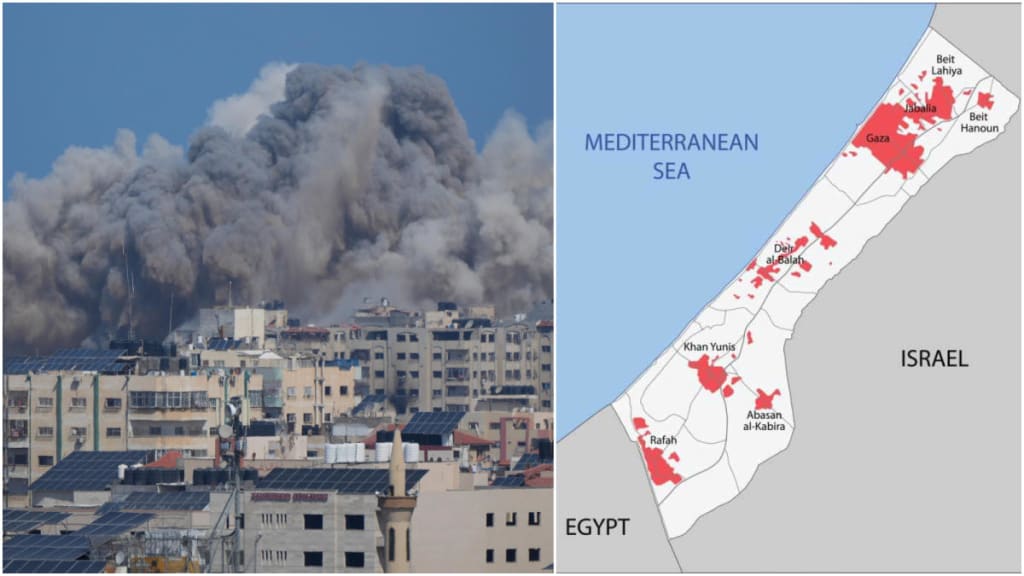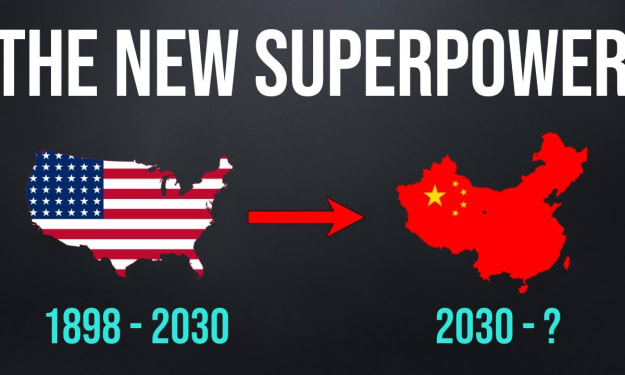"The Ongoing Humanitarian Crisis in Gaza: A Tale of Suffering and Blockade"
"Decades of Conflict, Siege, and Suffering: Understanding the Plight of Palestinians in Gaza"

The Gaza Strip, a tiny piece of land measuring only 25 miles long and 7.5 miles wide, is home to over 2 million Palestinians, making it one of the most densely populated areas in the world. Yet, for decades, Gaza has been a place of suffering, conflict, and a humanitarian crisis. The situation has been exacerbated by a prolonged Israeli blockade that controls the flow of essential resources, making life a daily struggle for the people living within its borders.
The roots of the Gaza conflict go back to the aftermath of World War II and the establishment of the state of Israel in 1948. In the chaos of the time, many Palestinians were displaced and forced to flee their homes, with some finding refuge in the Gaza Strip. This marked the beginning of Gaza's role as a haven for Palestinian refugees.
Fast forward to 1967, another pivotal year in the Israeli-Palestinian conflict, when Israel captured the Gaza Strip during the Six-Day War. This marked the beginning of the Israeli occupation of Gaza. Israel took control of all movement in and out of Gaza, establishing a physical barrier between Gaza and the outside world and imposing severe restrictions on travel, work, and access to essential resources.
The situation escalated during the First Intifada in 1987, as Palestinians protested against the Israeli occupation. The violence continued for years, with over 1,000 Palestinians and over 100 Israelis losing their lives. The Oslo Peace Accords in 1993 promised autonomy and a path to statehood for Palestinians within five years, but the peace process stalled, leading to the outbreak of the Second Intifada in 2000.
This violent uprising led to further restrictions on the movement of Palestinians in and out of Gaza, including the construction of a barrier and the militarization of the border. The situation worsened as Israel tightened its control over the sea, limited fishing capabilities, and restricted the import of essential items, such as fuel, medicine, and food. Israel even calculated the caloric intake of the population to control the amount of food allowed into Gaza.
The situation in Gaza reached a breaking point in 2007 when tensions between Hamas and Fatah, the political party backed by the Palestinian Authority (PA), led to a conflict. Hamas seized control of the entire strip, leading to a blockade that continues to this day. Israel has tightly controlled the flow of electricity, fuel, food, water, and medical supplies, deciding when and how much Palestinians receive of these essentials.
The impact of this blockade is undeniable, with 78% of Gaza's water becoming undrinkable, and 62% of the population in need of food assistance, as per a 2022 UN report. The people of Gaza face daily hardships, living with rolling power cuts that last for an average of 11 hours per day. The blockade constitutes a form of collective punishment, affecting the lives of over 2 million Palestinians.
The recent escalations of violence, like the one in October 7th by Hamas, have only worsened the humanitarian crisis in Gaza. Israel's response includes further bombings, damage to vital infrastructure, and a heavy toll on civilian lives. Despite international condemnation, the cycle of violence and suffering continues.
In the midst of this ongoing crisis, the people of Gaza have been caught in the crossfire between Hamas, Israel, and the broader political complexities of the Israeli-Palestinian conflict. Innocent civilians, including children, are the ones who bear the brunt of this tragedy.
The world must recognize and address the suffering of the people of Gaza. Humanitarian efforts are essential to alleviate the hardships faced by the population. Without hope and an end to the blockade, the cycle of violence is likely to persist. The tragedy of it all is that this situation could have been prevented, but the political complexities surrounding Gaza have made it a seemingly intractable issue.
The international community must prioritize finding a peaceful resolution to the Israeli-Palestinian conflict and address the humanitarian crisis in Gaza. The people of Gaza have endured decades of suffering, and it's time to bring them lasting peace and stability
About the Creator
Enjoyed the story? Support the Creator.
Subscribe for free to receive all their stories in your feed. You could also pledge your support or give them a one-off tip, letting them know you appreciate their work.






Comments
There are no comments for this story
Be the first to respond and start the conversation.